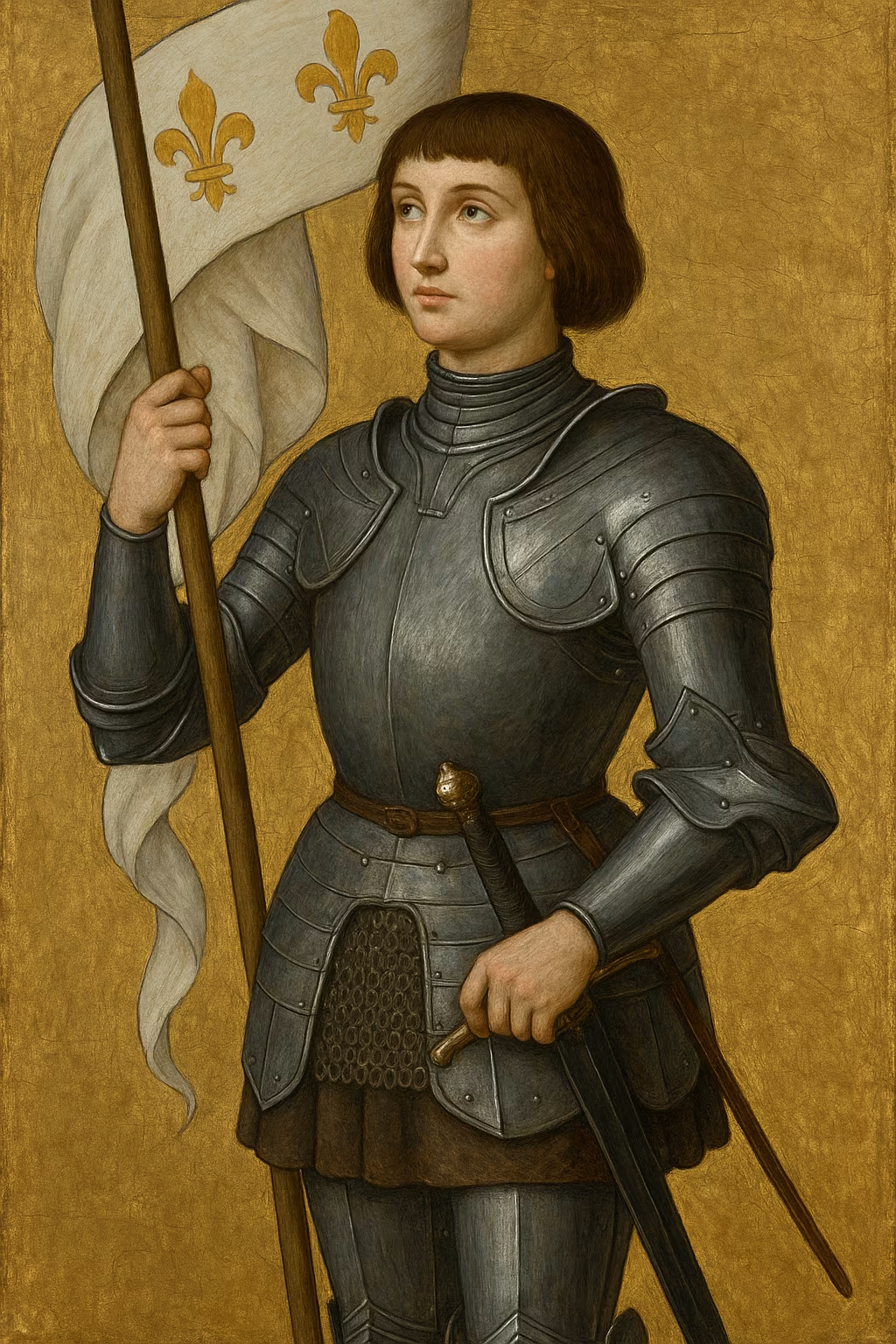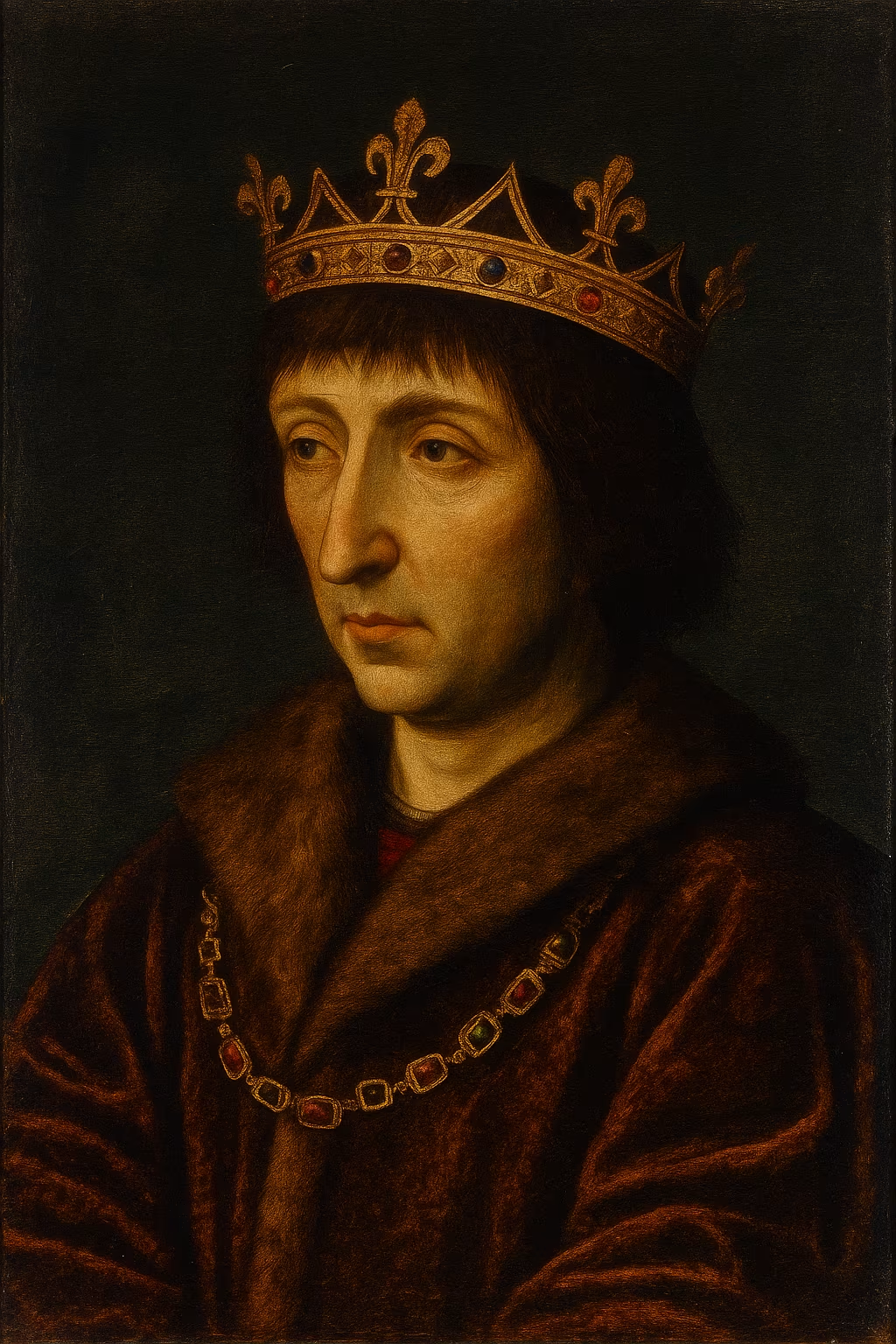Joan of Arc (1412 – 1431)
Quick Summary
Joan of Arc (1412 – 1431) was a military leader and major figure in history. Born in Domrémy, Duchy of Bar (Kingdom of France), Joan of Arc left a lasting impact through Lifted the siege of Orléans in 1429.

Birth
January 6, 1412 Domrémy, Duchy of Bar (Kingdom of France)
Death
May 30, 1431 Rouen, Duchy of Normandy (then under English rule)
Nationality
French
Occupations
Complete Biography
Early Life
Joan of Arc was born around January 6, 1412, in Domrémy, a small village in the Duchy of Bar, in a border region devastated by the Hundred Years’ War. Her parents, Jacques d’Arc and Isabelle Romée, were relatively prosperous peasants who managed farmland. Illiterate but devout, Joan was immersed in Catholic practice from childhood. She was remembered for her piety, generosity toward the poor, and regular attendance at church. Later testimonies highlighted her humility, simplicity, and devotion to the Virgin Mary.
Visions And Call
At the age of thirteen, around 1425, Joan began to report visions and voices. She identified them as Saint Michael the Archangel, Saint Catherine of Alexandria, and Saint Margaret of Antioch. These voices instructed her to support the dauphin Charles and help him reclaim his kingdom from English domination. For several years she kept these experiences secret before confiding in trusted acquaintances. Though initially met with doubt, her unshakable conviction gradually gained the respect of local leaders.
Military Career
In 1429, with France’s fortunes at a low point, Joan sought out Robert de Baudricourt in Vaucouleurs and asked for an escort to reach Charles VII. Initially skeptical, Baudricourt eventually agreed. At Chinon, Joan met the dauphin; chroniclers note she recognized him among his courtiers without introduction. Examined by theologians at Poitiers, she was declared orthodox in faith. Allowed to accompany the army, Joan donned armor and carried a banner depicting Christ. In May 1429 she played a crucial role in lifting the siege of Orléans, a turning point in the war. In the following weeks she inspired further French victories that opened the road to Reims. On July 17, 1429, she was present at the coronation of Charles VII, the culmination of her divine mission.
Capture And Trial
In May 1430, during an attempt to defend Compiègne, Joan was captured by Burgundian forces loyal to the English. Sold to the English, she was taken to Rouen and placed on trial before an ecclesiastical court presided over by Bishop Pierre Cauchon. The trial lasted from February to May 1431 and charged her with heresy, insubordination, and cross-dressing. Despite harsh interrogations, Joan responded with confidence and clarity. Witnesses described her as intelligent, steadfast, and deeply devout, but the outcome was politically predetermined.
Execution
On May 30, 1431, at the age of nineteen, Joan was executed by burning in Rouen’s marketplace. Eyewitnesses recalled her courage and religious devotion, invoking the name of Jesus as the flames consumed her. Her ashes were scattered into the Seine to prevent any veneration of relics.
Legacy
A retrial held in 1456 under the authority of Charles VII nullified the previous judgment and declared Joan innocent. Over the centuries she grew into a national symbol of faith and patriotism, especially through the works of writers such as Jules Michelet in the nineteenth century. Beatified in 1909 and canonized in 1920 by Pope Benedict XV, she is now one of the patron saints of France and endures as a universal emblem of courage and conviction.
Achievements and Legacy
Major Achievements
- Lifted the siege of Orléans in 1429
- Accompanied Charles VII to his coronation at Reims in 1429
- Enduring national and religious symbol
- Canonized in 1920
Historical Legacy
Joan of Arc remains a powerful emblem of resolve and faith, her brief life leaving an enduring mark on French national memory and Christian devotion.
Detailed Timeline
Major Events
Birth
Domrémy, Duchy of Bar
Visions
Reports heavenly voices
Siege of Orléans
French victory and relief of the city
Coronation at Reims
Charles VII crowned
Capture
Taken near Compiègne
Execution
Burned at the stake in Rouen
Geographic Timeline
Famous Quotes
“I am not afraid; I was born to do this.”
“About Jesus Christ and the Church, I simply know they're just one thing.”
Frequently Asked Questions
When was Joan of Arc born and when did she die?
Born January 6, 1412; executed May 30, 1431.
What was her mission?
She claimed heavenly voices instructed her to aid Charles VII and free France.
How did she affect the Hundred Years’ War?
Her 1429 successes, especially Orléans, revitalized French momentum and enabled the coronation.
Why was she executed?
Convicted of heresy and cross-dressing in a politically driven trial.
When was she canonized?
Canonized in 1920.
Sources and Bibliography
Primary Sources
- Procès de condamnation de Jeanne d’Arc (1431)
- Procès de réhabilitation de Jeanne d’Arc (1456)
Secondary Sources
- Régine Pernoud, Jeanne d’Arc ISBN: 9782070320740
- Kelly DeVries, Joan of Arc: A Military Leader ISBN: 9780750918053
External References
See Also
Related Figures
Specialized Sites
Batailles de France
Discover battles related to this figure
Dynasties Legacy
Coming soonExplore royal and noble lineages
Timeline France
Coming soonVisualize events on the chronological timeline
